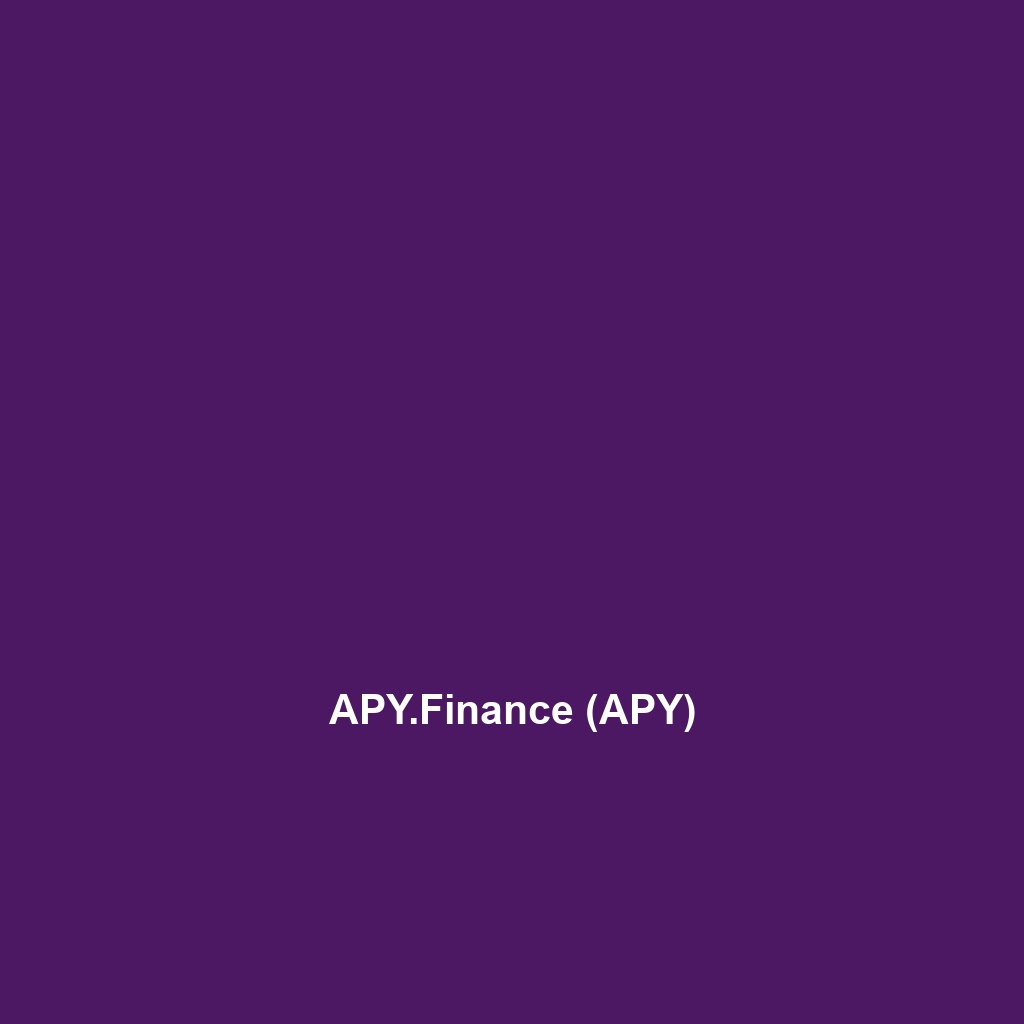Your cart is currently empty!
Tag: Byzantine Fault Tolerance

Aptos (APT)
Aptos (APT) €œ Revolutionizing Blockchain Technology
Name and Ticker Symbol: Aptos, represented by the ticker symbol APT, is a cutting-edge cryptocurrency aiming to bring significant improvements to blockchain technology.
Founders, Launch Date, and History: Aptos was co-founded by Mo Shaikh and Avery Ching in 2021. The launch comes on the back of their extensive experience with the Diem project from Facebook, which heavily influenced the design and architecture of Aptos. After raising significant capital and establishing partnerships, Aptos officially began trading on exchanges in October 2022, marking its entry into the highly competitive cryptocurrency market. Milestones include the successful completion of their mainnet launch, achieving high transaction throughput, and garnering interest from developers and investors.
Blockchain Platform: Aptos operates on its own layer 1 blockchain platform, setting itself apart from well-known entities like Ethereum and Bitcoin. This foundational layer offers a unique solution to smart contract deployment, emphasizing efficiency and speed, which have been pivotal in overcoming some of the scalability challenges seen in older blockchain systems.
Purpose and Use Case: Aptos was created with the overarching purpose of enhancing user and developer experiences on the blockchain. Its primary use cases include enabling seamless smart contract interactions, decentralized finance (DeFi) applications, and NFT platforms, making it a versatile player in the blockchain ecosystem. With a focus on scalability and security, Aptos aims to facilitate adoption across various industries, including gaming and e-commerce.
Technology and Consensus Mechanism: At the core of Aptos€„¢ technology is a unique consensus mechanism called Byzantine Fault Tolerance (BFT), specifically the AptosBFT protocol. This algorithm allows the network to achieve high throughput and low latency while maintaining security and decentralization. The innovative Move programming language, specifically designed for Aptos, aids in built-in safety features, ensuring that smart contracts are less prone to vulnerabilities.
Supply and Tokenomics: The total supply of APT tokens is capped at 1 billion, with specific allocations for community engagement, ecosystem development, and team incentives. The circulating supply initially stood at around 300 million APT. Aptos encourages staking, offering rewards to incentivize participation while ensuring network security. The team is also considering a burn mechanism to control inflation and maintain the value of the token.
Use Cases and Adoption: Aptos has attracted attention from various sectors, creating partnerships with DeFi platforms, NFT marketplaces, and gaming studios. Projects like PancakeSwap and a range of decentralized applications (dApps) are utilizing Aptos technology, indicating strong real-world applications.
Market Performance and Metrics: As of now, Aptos enjoys a solid market capitalization, often fluctuating within the top tiers of cryptocurrency rankings. Historical price trends demonstrate a significant volatility typical of the cryptocurrency market, with peaks driven by community developments, partnerships, and broader market movements. Trading volumes have surged since launch, indicating strong interest amongst traders.
Where to Buy and Trade: Aptos (APT) can be purchased on various cryptocurrency exchanges, both centralized (CEX) and decentralized (DEX). Notable exchanges include Binance, Huobi, and Coinbase, providing multiple avenues for trading. A growing number of DEXs are also beginning to integrate APT into their offerings, enhancing accessibility for traders.
Security and Risks: As with all cryptocurrencies, Aptos is not immune to security vulnerabilities. While it has not suffered any major hacks to date, the overall environment poses regulatory and technical challenges. Legal scrutiny surrounding cryptocurrencies might impact its operations. It is crucial for users to maintain appropriate security practices when storing or trading APT tokens.
Community and Governance: The Aptos governance model is designed to involve the community in key decision-making processes. This includes staking mechanisms that allow APT holders to participate in governance votes. Engaging the community is a priority for Aptos, ensuring that development is aligned with user interests and needs.
Competitors and Differentiation: Aptos faces competition from established players like Solana and Avalanche, both of which also offer high-performance decentralized applications. However, Aptos differentiates itself with its proprietary technology, particularly the Move programming language, which provides enhanced safety and efficiency. Furthermore, its focus on scalability represents a core advantage over many legacy blockchain frameworks.
Roadmap and Future Developments: The journey for Aptos is far from over. Upcoming developments include enhancements in transaction speeds, additional partnerships within the DeFi space, and the introduction of more comprehensive tools for developers to create dApps. Ongoing community feedback will likely shape future iterations of the protocol.
Wallet Compatibility: Aptos is compatible with several well-known wallets, including MetaMask, Ledger, and Sui Wallet, enabling users to securely store, send, and receive their APT tokens across various platforms.
Regulatory and Compliance Status: As cryptocurrency regulation continues to evolve, Aptos remains vigilant in adhering to legal standards. While no major regulatory hurdles have been reported, the changing landscape could introduce challenges that Aptos must adeptly navigate to ensure compliance.
Recent News and Updates: Among the recent updates for Aptos is the announcement of strategic partnerships aimed at enhancing DeFi capabilities and the integration of more dApps on its platform. These developments signify Aptos€„¢ commitment to expanding its ecosystem and fostering user engagement.
Summary and Call to Action: Aptos (APT) represents a promising new avenue in the cryptocurrency landscape, driven by innovative technology and a strong team. As blockchain technology continues to advance, Aptos stands out with its focus on developer usability, security, and scalability. Staying informed about this project and participating in its community may present opportunities for both developers and investors alike.
For additional insights, visit UpCube.net. Also, check out Aptos€„¢ official website or whitepaper for comprehensive details.

DigitalBits (XDB)
DigitalBits (XDB): A Comprehensive Overview
DigitalBits is a cutting-edge cryptocurrency that operates under the ticker symbol XDB. This detailed description explores the core aspects of DigitalBits, including its history, use cases, technology, and market performance.
Founders, Launch Date, and History
DigitalBits was launched in 2018 by a team of visionary founders including Marcel Kasumovic, who aimed to create a digital asset tailored for businesses and consumers. The project has seen significant milestones, such as its growth in partnerships with major brands and a steady expansion of its ecosystem.
Blockchain Platform
DigitalBits operates on its proprietary blockchain platform, designed specifically for fast and efficient transactions. It is a layer 1 blockchain solution, boasting an architecture optimized for supporting digital assets and providing a sustainable ecosystem for various use cases.
Purpose and Use Case
The primary purpose of DigitalBits is to enable brands and businesses to issue and manage their own digital currencies while offering consumers numerous payment solutions. Key use cases include loyalty programs, cross-border payments, and facilitating transactions in the DeFi space.
Technology and Consensus Mechanism
DigitalBits utilizes an innovative consensus mechanism known as Byzantine Fault Tolerance (BFT), which ensures high throughput and reliability. This technology allows the network to process transactions quickly and securely, setting it apart from traditional blockchains.
Supply and Tokenomics
The maximum supply of XDB is capped at 1 billion tokens, with a circulating supply that varies based on market dynamics. DigitalBits incorporates a unique staking reward mechanism that incentivizes users for holding their tokens. Additionally, a burn mechanism is in place to reduce supply over time, thereby potentially increasing the token’s value.
Use Cases and Adoption
DigitalBits has found real-world applications in various industries, particularly in retail, where brands like Top Shot and Zytara have begun leveraging its blockchain technology. This widespread adoption highlights the versatility of XDB in supporting various business models.
Market Performance and Metrics
As of October 2023, the market capitalization of DigitalBits stands at approximately $200 million. Historical price trends have shown volatility typical of cryptocurrencies, with significant price movements that correlate with broader market trends. Daily trading volume also reflects active market participation, contributing to its liquidity.
Where to Buy and Trade
XDB is available on various cryptocurrency exchanges, both centralized and decentralized. Notable platforms include KuCoin, BitMart, and decentralized exchanges like PancakeSwap. The availability on multiple exchanges ensures that traders have ample opportunities for trading and investment.
Security and Risks
DigitalBits has maintained a strong security record, with no major hacks reported to date. However, as with any cryptocurrency, risks such as regulatory challenges and market volatility remain. Investors should stay informed about these vulnerabilities while engaging in crypto trading activities.
Community and Governance
The governance model of DigitalBits encourages community involvement, allowing XDB holders to vote on critical decisions. Engagement initiatives, including forums and development proposals, foster a proactive community that shapes the future of the platform.
Competitors and Differentiation
In the competitive landscape, DigitalBits stands out against projects like Stellar and Ripple through its intense focus on brand-centric digital currencies. Its technology and use cases offer unique advantages that attract businesses looking to create customized solutions.
Roadmap and Future Developments
The roadmap for DigitalBits includes significant partnerships aimed at expanding its ecosystem and usability across various platforms. Upcoming enhancements focus on increasing blockchain scalability and integrating more features to support DeFi applications.
Wallet Compatibility
XDB is compatible with several popular wallets, including Ledger and MetaMask. This compatibility ensures that users can safely hold and manage their DigitalBits assets with convenience.
Regulatory and Compliance Status
DigitalBits is committed to following regulatory frameworks to ensure compliance. While the cryptocurrency space faces ongoing scrutiny, DigitalBits has proactively engaged with legal entities to mitigate potential issues.
Recent News and Updates
Recently, DigitalBits has announced partnerships with several major retailers, further embedding its technology into the consumer landscape. These collaborations reflect a strategic push towards mainstream adoption and increased visibility in the crypto market.
Summary and Call to Action
DigitalBits (XDB) is a promising cryptocurrency offering significant potential in the evolving world of blockchain technology. Its unique features, strong community engagement, and established partnerships make it an asset worth following. As the cryptocurrency landscape continues to grow, keeping an eye on XDB could provide valuable insights and investment opportunities.
For additional insights, visit UpCube.net. For more information on DigitalBits, visit the cryptocurrency€„¢s official website or read their whitepaper.